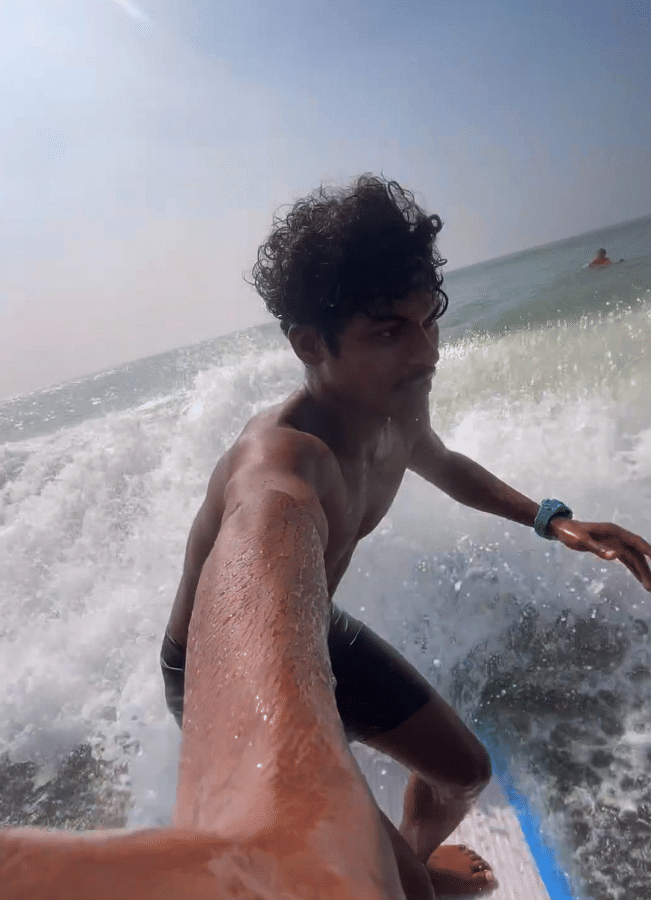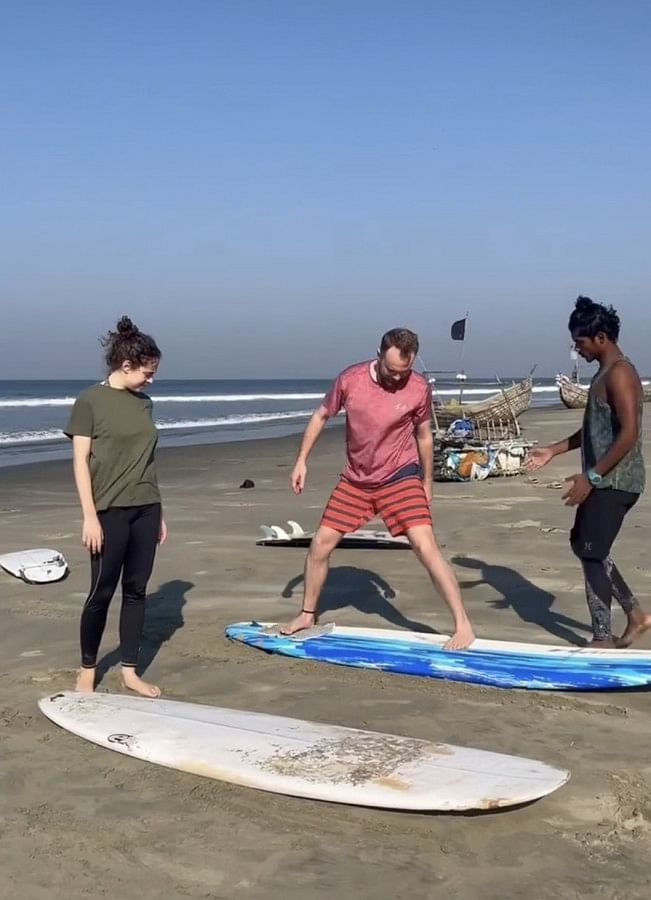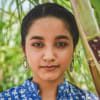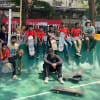When I came across Surfer Younus' profile on social media, I was quite amused. A young surfer in his late teens was conquering Cox's Bazar's tides with a fleet of young surfers behind him, following his every move. I was even more enthused to see women surfers on his team, especially considering how our society views women's participation in sports. So, on my next visit to the sea, I knew I had to meet this curly-haired marvel and learn about his journey.
Younus Ali's journey with surfing emerged from a great loss. In 2008, his father, who used to be a sea-farer, died at sea. At the time, he was just six years old. After suffering this loss, his mother often used to warn Younus about the dangers of the tides. This had instilled a deep fear within Younus and he equated water with imminent death. "When my father passed away, I knew I had to overcome my fear of water and drowning. But I didn't know how, until one day in 2009, when I met my mentor, Ramzan Miah. Under his tutelage, I trained for four years. He was like a watchful protector for me. He made me believe that I could realise all of my dreams, and would perpetually push me to pursue every one of those goals," said Younus when asked how his journey started.

Younus officially became a surfer in 2014, anointed by the Asian Surfing Federation after winning a national championship in Cox's Bazar. For that particular competition, Ramzan had registered Younus in the senior category without informing him. By the end of the competition, Younus was crowned the winner in his category.
"Ramzan bhai used to enlist me into the senior categories of every competition and used to tell me, quite stubbornly, 'You can do it.' The people I was competing against in that competition had been champions internationally. One of them was even a seven-time champion. But although I was afraid of the competition, I was not afraid of the water. I was just 17 when I won that title and it was all because of Ramzan bhai," said Younus.
I don't know if it was because of his "surfer's state of mind," but I understood that Younus is a man who wears his smile like an armour. And as a child who dreamt of being a surfer and lost his father at an early age, his life has been far from easy.

Younus started working at the age of 13 or 14. He told me with a smile, "My brother and I started working at an early age to make sure our mother had the time to grieve and didn't have to worry about money ever. I started working for different NGOs as a volunteer to get some cash. I even work as a tourist guide. Somehow, both my brother and I built a career around the ocean's tides. While I'm a professional surfer, he's a professional lifeguard."
Younus' first international competition was in Bali, where the waves were as tall as 30 feet. He was used to waves that don't go higher than 10 feet, which he could glide on for a minimum of four to five hours daily. "The first time I got crushed under a wave in Ubud, I cried because I thought I wouldn't get up. When a wave plunges on a person, they have to stay under the water for at least two minutes before getting out. I think I was underwater that day for over five minutes. The water in Bali was different, it had a different weight and it pulled on me."
While that may have tamed any other person's passion, it wasn't the case for Younus.
"I took on a personal challenge for myself to conquer this new terrain. I had made a list of all the risky places to surf in Bali and I surfed at every single one of them. There's even a spot called Killer Point where accidents happen often. I even surfed there to prove a point for myself."
I became curious to know how Younus trained for the international arena, where he witnessed 30-foot waves while living in Bangladesh. He said that he visited many places to get a well-rounded experience such as Sonadia Island, Saint Martin's Island, Patuartek, Teknaf, Shaplapur near Marine Drive, and others. Younus said, "Sometimes we get close to the Myanmar border where the navy supports our training by permitting us to surf there. I guess that's one perk of being a surfer, you get to surf near the waters of restricted islands!"
The young surfer is now a member of the Divine Beach Club, part of Divine Eco Resort, where he trains a small team of local surfboarders. Not only does Younus help these youth to learn surfing, but he and his team also spend their leisure time keeping the space in front of their club free from trash.
"I started training other interested folks in 2019, but after Covid hit, we paused all sorts of training until 2022. It was more difficult for our female surfers to stick to their passion. Often, they would be cat-called when wearing their surfing gear. Sometimes, their parents would prevent them from continuing surfing. I voluntarily visited their houses and sat down with their parents to seek their permission. Once I was able to convince them of their daughters' safety, some parents allowed their daughters to surf," informed Younus.

Conversing with Younus Ali, I wondered how the young surfer finances his passion, especially since he comes from a background of struggle. When asked, Younus replied that he is currently sponsored by the National University of Singapore. He explained that the Bangladesh Cricket Board also provides his team with partial funding from different sponsorships the board receives which aren't used. But even these funding sources cannot fully sustain this sport on the coast.
"As surfing is not a popular sport in Bangladesh, we lack essential gear that is needed to ensure safety. We also don't have good trainers, and the surfing boards we use were donated to us. A good surfing board costs anywhere between $2,000 to $3,000, and these boards are very prone to getting damaged."
When asked about what could change this status quo to create an ecosystem where our surfers are better supported, Younus told me, "Currently, there are four surf clubs in Cox's Bazar. These clubs must work together to create a surfing community. Right now we have clubs that only look after their interest and this is hurting us all. Moreover, the surfing association that we have in Cox's Bazar is futile because it consists of non-surfers who call the shots and do not work at any length to collect more sponsorships. This needs to change. Government support would help tremendously in this regard. For example, if we had a South Asian membership at an international surfing association, which is a one-time membership that costs around $3,000, we wouldn't have to seek new competitions or get sponsorships on our own. The association would do these tasks for us. It's also a lot easier for the sports ministry to send abroad a 10-member surfing team bearing Bangladesh's flag than it is for us. If the logistics are made simpler, surfing will improve, too."
"So what's next for Surfer Younus?" The young man smiled slyly at my question and said, "My dream is a death wish. I want to win two more championships so that I get the clearance to ride a 100-feet wave in California."
I could tell that his dream is not a dream per se, but an event that will only require time to come true.
Nazifa Raidah is a member of the editorial team at The Daily Star.
Views expressed in this article are the author's own.
Follow The Daily Star Opinion on Facebook for the latest opinions, commentaries and analyses by experts and professionals. To contribute your article or letter to The Daily Star Opinion, see our guidelines for submission.








Comments